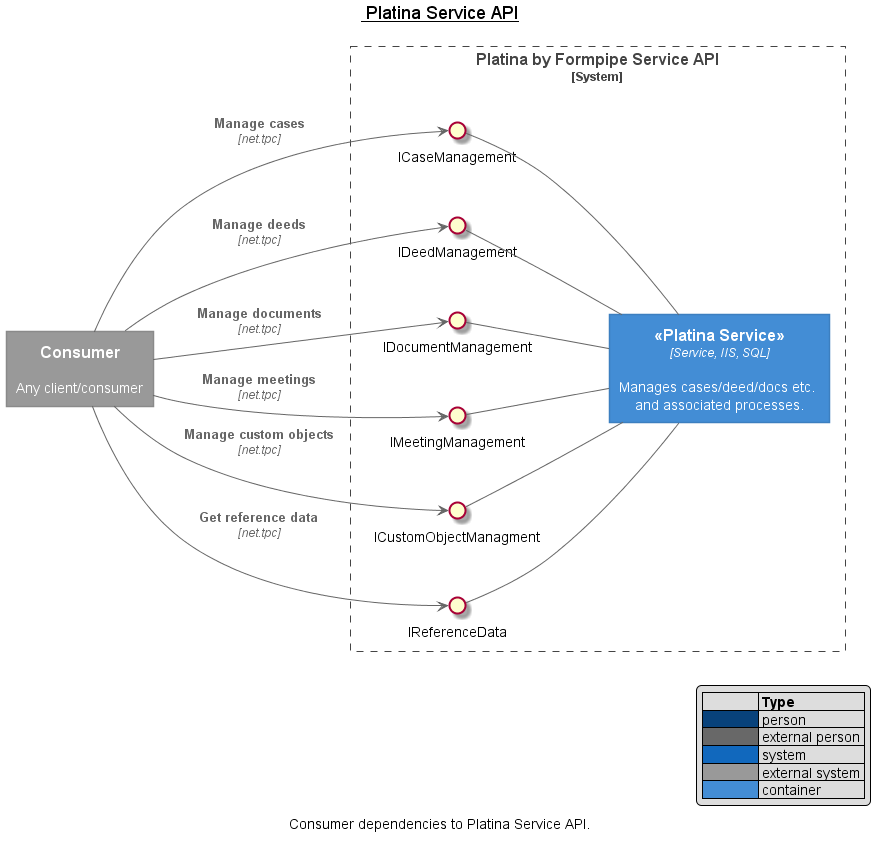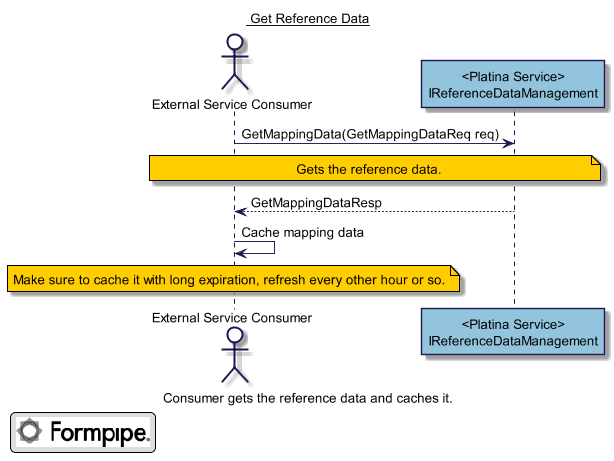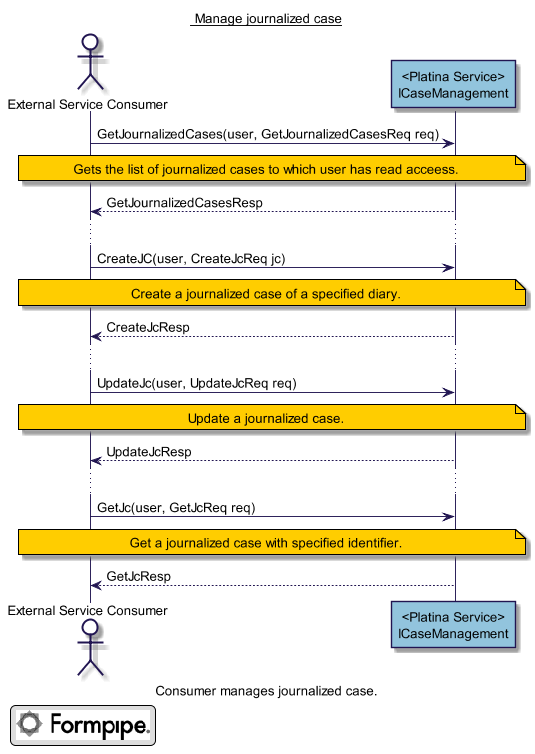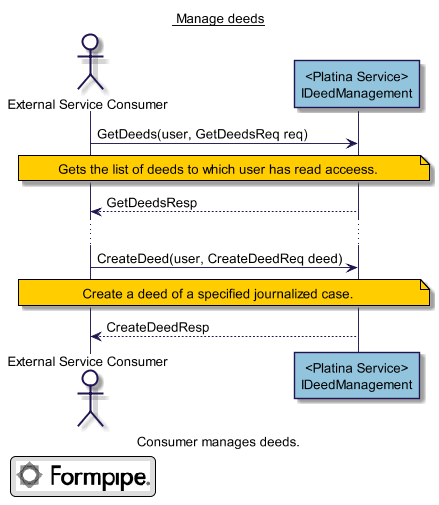Platina Standard API
Purpose
The purpose of this document is to describe the usage of the Platina Standard API from a consumer perspective.
Generally
The service exposes methods for managing journalized cases, deed and documents. Currently the service supports the most basic uses cases. In essence the service is CRUD based Platina objects.
The responsibility of the service is to expose Platina ECM functionality to external consumer(s). For that purpose, the service provides different management service endpoints.

The API is separated into different subareas (exposed as endpoints), where each area supports different related features. Below are the different areas:
| Area | Responsibility |
|---|---|
| Platina Reference Data | Exposes the reference data (read only data). For example case-and deed types, as well as for example PUL- and secrecy levels. |
| Journalized Case Management | Exposes functionality related to cases and diaries. |
| Deed Management | Functions for managing deeds |
| Document Management | Functions for document management. |
| Meeting Management | Functions for managing meetings |
| Custom Object Management | Exposes functionality for custom object management |
Use case description
This chapter describes the most common use cases and features implemented by this service.
Reference Data Management
Read only reference data from Platina. The data is used by the consumers to maintain the reference integrity as well as show meta data in different GUI element (drop down lists etc.)

Journalized Case Management
The journalized case management endpoint support features for creation of journalized, please refer to Figure 1 below.

Deeds Management
The deeds management endpoint supports features for create, read and update deeds in Platina. The requesting user must have authorized access to the objects.

Deployment
Currently the service is deployed as a part of Platina and relies on a few core assemblies. Since Platina is deployed internally, usually on intra-net sites, it currently does not support an externally compatible interface. However, it is possible to change the binding configuration if needed.
Limitations
The existing version currently has some non-functional limitations. Below are some of the current limitations listed:
- Authorization is managed by Platina, this is not very scalable.
- Platina lock management.
- Scalability.
- Service host relies on TCP/IP binding. Support for HTTP binding will have to be added as requested.
- The service assumes a one to one relation between diary and instance to be configured in Platina.